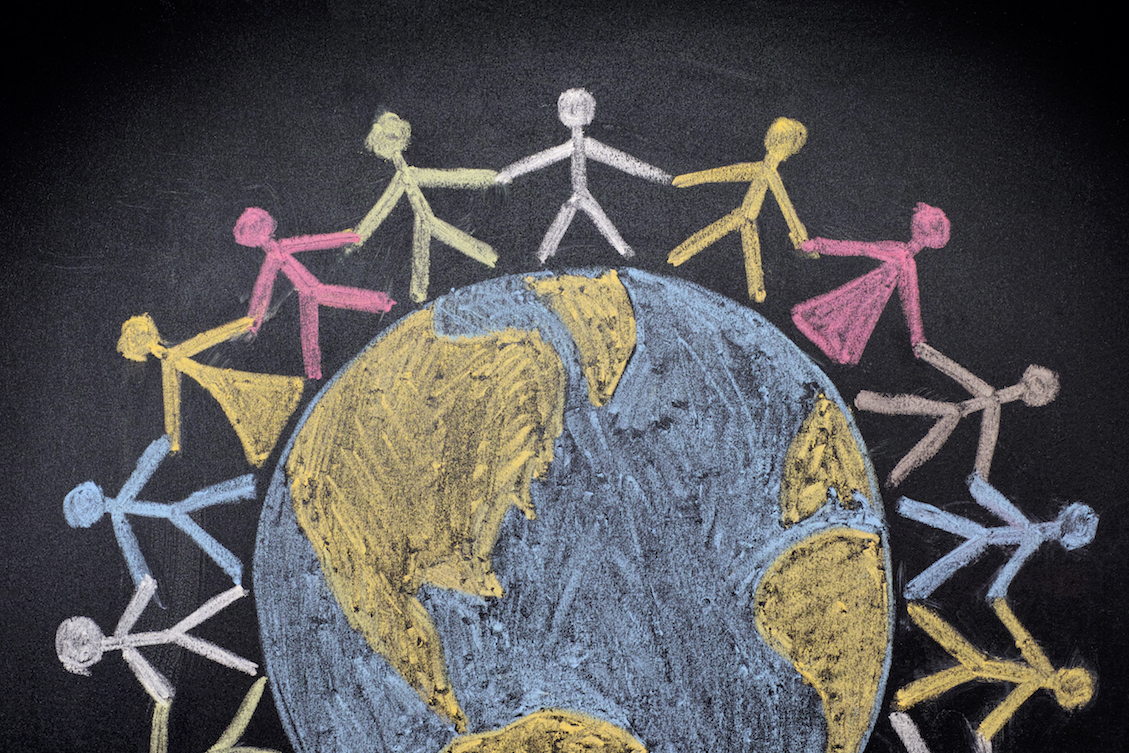IGF 2018 Paris: Why Internet Governance Needs the Voices of Philosophers and Anthropologists
Honorary President of the eco Association Michael Rotert reports on the global discussions of the Internet Governance Forum 2018, how important ethics are for the future of the Internet, and how states need to work together.

© Natali_Mis | istockphoto.com
Emmanuel Macron, President of the French Republic, at the Internet Governance Forum 2018 in Paris, stated that the Internet was threatened in its core structure, specifically with regard to the safety of infrastructures of vital importance, and that the cyberwarfare currently being waged could result in a fragmentation of the Internet as we know it.
He then proceeded to state that, in order to preserve a free Internet, it needs to be regulated, in order to avoid the creation of two Internets: the ‘libertarian Californian Internet’ and the ‘censored, controlled Chinese Internet’. He also stated that Net Neutrality should not become a ‘universal ideology’ and should not stand in the way of content regulation.
(As a brief aside, my own personal remark to this demand of more regulation is: “If real life were to be regulated like the Internet already is, it wouldn’t be funny anymore”).
According to Emmanuel Macron, the IGF should thus be attached to the United Nations Secretary-General, should be tasked to propose concrete initiatives, and should be given the following roadmap:
- Content regulation: Macron made a distinction between ‘severely unlawful content’ such as CSAM and terrorist content, and content that could be unlawful with regard either to the applicable law or the interpretation of the reader: cyber bullying, hate speech… According to Macron, while AI-powered filtering technology is sufficient for the 1st category, the second category needs the intervention of a judge, and privately-owned entities should not be able to decide what is, or isn’t, unlawful content.
- Anonymity should not be granted, and the EU and the USA should cooperate with regard to electronic evidence
- Hate speech is a priority and the European Commission should propose a legislative initiative
- With regard to fake news, there is a need for trusted flaggers and trusted third parties. Reporters sans frontières also came forward with an initiative that is fully supported by France
- Other topics were touched upon and described as ‘vital’: Copyright, the P2B (Person to Business) regulation, a significant investment in the education of citizens, equal taxation within the EU, and a strong competition law.
Adapting the IGF for future needs
To put it in a nutshell, if the IGF wants its core mission to remain the same, the way it operates must evolve. The need for change and a new vision for the future did not just distinguish the opening speech of French President Macron, but also echoed in the opening speech of UN Secretary-General Antonio Guterres. The two speeches were much more than diplomatic routines. They were substantive reflections on the present moment, and bold visions for the digital development ahead of us.
Concrete proposals were not missing from these speeches. UN Secretary-General Guterres clearly outlined parameters for the IGF 2.0. The IGF should not only be multistakeholder, but also multidisciplinary. Philosophers and anthropologists, among others, will be needed more and more in debating questions of ethics and the future use of technology. He invited the IGF community to listen to the unheard and marginalized voices of local communities, people with disabilities, the youth, and the elderly. Digital growth affects us all, yet many remain outside of current debates.
After Macron’s speech, Christian Hirte, Secretary of State in Germany, the next country to host the IGF, stated Germany’s top-three priorities for the next IGF (2019):
- The creation of an international parliamentary group that would take part in the IGF in order to come up with legislative solutions
- Germany will put a strong focus on SMEs
- The next IGF should also focus on artificial intelligence and ethics
Christian Hirte’s final point emphasized one of the current mainstream issues, as already in Paris most of the sessions had a strong connection to artificial intelligence and ethics.
About technology and infrastructure
Emerging technologies like artificial intelligence (AI) depend on high-speed Internet. However, in some parts of the world, connectivity itself is the challenge. Improving access to the backbone of the Internet is vital for addressing the digital divide worldwide.
At the national level, one way of achieving greater connectivity is through community networks. There are many examples of successful community network projects, run or supported by organizations such as the Internet Society, AlterMundi, and Guifi.net. But there are also difficulties in setting up such networks, ranging from challenging regulatory frameworks to barriers in accessing and using spectrum resources.
Trust in the potential of emerging technologies, such as AI and blockchain, is crucial if we want to make the best use of their ability to improve our lives. Blockchain can be used to increase trust in public institutions and government processes, as fully decentralized systems are expected to reduce the need for oversight.
A first step in building trust is raising awareness and understanding of AI and other emerging technologies.
Cyber security and the stability of cyber space
Dealing with global risks featured prominently in the IGF 2018 discussions on cybersecurity. In wartime, international law provides a set of rules for state behavior. But what about ensuring cybersecurity in times of peace?
The Global Commission on the Stability of Cyberspace (GCSC) reiterated its proposed set of voluntary norms for state and non-state behavior, centered on the protection of the public core of the Internet. The public core includes the physical infrastructure of cable systems, the transmission of communications, cryptographic keys for authenticating users and devices and securing Internet transactions, and the Internet’s address book of names and numbers. The norms say that states should respect the principles of due diligence, good governance, and neighborliness in their behavior, to prevent attacks originating from their own territories, in particular by non-state actors.
Some states may not agree with these suggestions. Disagreements reflect deep political and conceptual differences. How can countries be encouraged to endorse and adhere to norms? A helpful measure is to explore further the concept of (cyber)sovereignty.
When it comes to the private sector’s behavior, offensive measures to defend against cyber attacks, known as hack-backs, can cause additional security consequences and are also illegal in some countries.
Discussions also turned to encryption: Due to a shift to so-called service-centric networking – where most services are provided in the cloud rather than based on software installed on our devices – service providers need to integrate encryption more firmly into these services. This is particularly important for Internet of Things applications.
Digital regulations in focus
‘Technology moves much faster than the law’ was the underlying message of the IGF meeting’s legal discussions, which brought the impact of the GDPR on digital legal developments into focus.
The GDPR’s impact beyond EU borders creates mixed reactions. It kindles a culture of privacy and data protection and may inspire other countries to follow this model. However, it also creates challenges of cross-border jurisdiction and highlights the need for digital cooperation to identify internationally accepted solutions and regulations.
The 2019 IGF will take place in Berlin with many events running from November 25th until November 29th 2019 at the Estrel Hotel Berlin. I hope to meet many readers of dotmagazine there – watch out for the eco/DE-CIX booth.
Incidentally, for further insight into the 2018 IGF, watch Afnic CEO Pierre Bonis' review of the event (Youtube video in French language with English subtitles below).
Note: This article uses notes from Alexandra LAFFITTE from the Fédération Française des Télécoms and the daily IGF reporting, a project by Geneva Internet Platform DigitalWatch
Michael Rotert is a pioneer and veteran of the Internet industry – and was the first person on German soil to receive an email. Amongst other posts, his stellar career spans Technical Head of the Data Center of the Informatics Department at the University of Karlsruhe, Founder and Managing Director of the ISP Xlink (later KPNQwest), and managing directorships of various service providers. After stepping down from his long-standing service as Chair of eco – Association of the Internet Industry in 2017, he became Honorary President of the eco Association in the same year. Rotert is also a founding member of the Internet Society, DE-NIC, and other Internet bodies, and contributes his industry expertise through membership of numerous committees and advisory councils.





